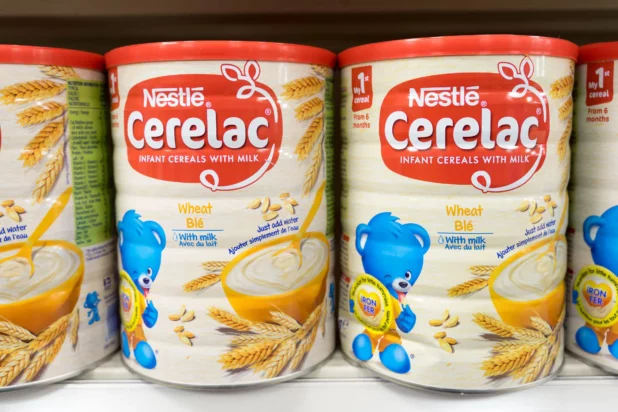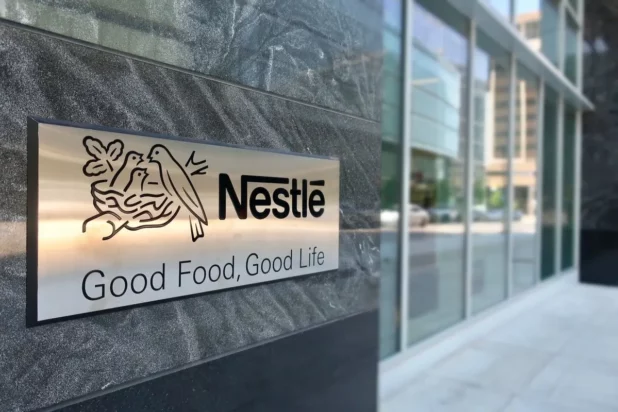Cereals for infants sold in Africa were found by Public Eye to contain 6g of added sugar per serving, while the same product sold in Switzerland had none.
When you’re a multinational corporation, they let you do it.
Nestlé, the world’s largest consumer goods company, adds sugar and honey to infant milk and cereal products sold in many poorer countries, contrary to international guidelines aimed at preventing obesity and chronic diseases, a report has found.
Campaigners from Public Eye, a Swiss investigative organisation, sent samples of the Swiss multinational’s baby-food products sold in Asia, Africa and Latin America to a Belgian laboratory for testing.
The results, and examination of product packaging, revealed added sugar in the form of sucrose or honey in samples of Nido, a follow-up milk formula brand intended for use for infants aged one and above, and Cerelac, a cereal aimed at children aged between six months and two years.
In Nestlé’s main European markets, including the UK, there is no added sugar in formulas for young children. While some cereals aimed at older toddlers contain added sugar, there is none in products targeted at babies between six months and one year.
Laurent Gaberell, Public Eye’s agriculture and nutrition expert, said: “Nestlé must put an end to these dangerous double standards and stop adding sugar in all products for children under three years old, in every part of the world.”
…
WHO guidelines for the European region say no added sugars or sweetening agents should be permitted in any food for children under three. While no guidance has been specifically produced for other regions, researchers say the European document remains equally relevant to other parts of the world.
The UK recommends that children under four avoid food with added sugars because of risks including weight gain and tooth decay. US government guidelines recommend avoiding foods and drinks with added sugars for those younger than two.
Biscuit-flavoured cereals for babies aged six months and older contained 6g of added sugar for every serving in Senegal and South Africa, researchers found. The same product sold in Switzerland has none.
Tests on Cerelac products sold in India showed, on average, more than 2.7g of added sugar for every serving.
In Brazil, where Cerelac is known as Mucilon, two out of eight products were found to have no added sugar but the other six contained nearly 4g for each serving. In Nigeria, one product tested had up to 6.8g .
Meanwhile, tests on products from the Nido brand, which has worldwide retail sales of more than $1bn, revealed significant variation in sugar levels.
Do you have any idea how badly this would fuck up a baby?

I wonder what they’re doing to white people, if they’re willing to do this nasty trick to brown people?


